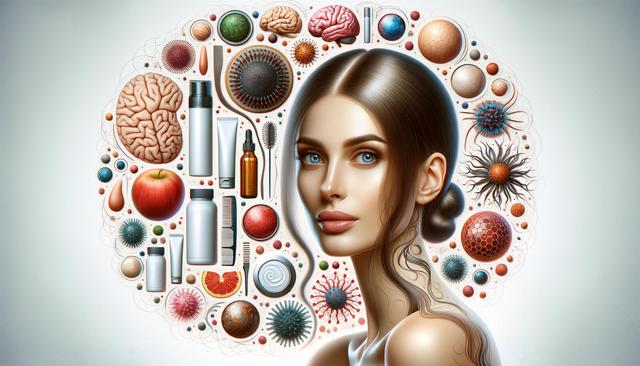Understanding the Causes of Hair Loss
Hair loss is a common concern for men, affecting a significant portion of the male population worldwide. Understanding the causes of hair loss is a crucial step towards addressing the issue effectively. One of the primary causes is genetics, often referred to as male pattern baldness. It is inherited and follows a predictable pattern, leading to thinning hair on the scalp and receding hairlines. Hormonal changes, particularly the increase in dihydrotestosterone (DHT), can also contribute to hair loss, affecting hair follicles and reducing their growth cycle. Other factors include stress, poor diet, and medical conditions such as thyroid problems. By identifying the root causes, men can better explore suitable treatment options.
Top Treatment Options
Once the causes of hair loss are understood, exploring treatment options becomes essential. There are several well-regarded treatments available for men experiencing hair loss. Among the most common are medications such as minoxidil and finasteride, which have shown promising results in many users. Minoxidil is a topical treatment applied directly to the scalp, while finasteride is an oral medication that reduces DHT levels. Hair transplant surgery is another option, offering a more permanent solution by relocating hair follicles from one part of the scalp to another. Additionally, low-level laser therapy has emerged as a non-invasive treatment that stimulates hair growth. Each of these treatments has its advantages and potential side effects, making it important for individuals to consult with healthcare professionals before proceeding.
Lifestyle Changes for Healthier Hair
In addition to medical treatments, lifestyle changes play a crucial role in managing hair loss and promoting healthier hair. A balanced diet rich in vitamins and minerals supports hair growth and overall scalp health. Nutrients such as biotin, zinc, and omega-3 fatty acids are particularly beneficial for maintaining healthy hair. Reducing stress through mindfulness practices, regular exercise, and adequate sleep can also have positive effects on hair health. Proper hair care routines, including gentle washing and avoiding excessive heat from styling tools, help prevent further damage to hair. These lifestyle adjustments can complement medical treatments and enhance their effectiveness.
Psychological Impact and Support
Hair loss can have a significant psychological impact on men, affecting their self-esteem and confidence. For many, hair is associated with youth and vitality, and its loss can lead to feelings of insecurity. Seeking support from friends, family, or support groups can help individuals cope with these changes. Counseling or therapy may also be beneficial for those struggling with the emotional aspects of hair loss. Building a supportive network and focusing on self-acceptance can improve overall well-being and reduce the stress associated with hair loss. It’s important for men to remember that hair loss is a common issue and seeking help is a positive step towards regaining confidence.
Emerging Research and Future Possibilities
Research into hair loss treatments is continually advancing, offering hope for new and improved solutions in the future. Scientists are exploring innovative approaches such as gene therapy, stem cell research, and the development of new medications that target different pathways involved in hair loss. These advancements hold promise for more effective and personalized treatments. Staying informed about the latest research can empower men to make informed decisions about their hair loss treatment options. As science progresses, the future may bring even more effective solutions for managing and potentially reversing hair loss.
Conclusion
Addressing hair loss can be a complex journey, but understanding the available treatments and making informed choices can greatly enhance self-confidence and well-being. Whether opting for medication, surgical procedures, or lifestyle changes, men have a range of options to explore. The key is finding a solution that aligns with personal preferences and health considerations. As research continues to evolve, the future of hair loss treatment looks promising, offering even more opportunities for men to regain their hair and self-assurance.
